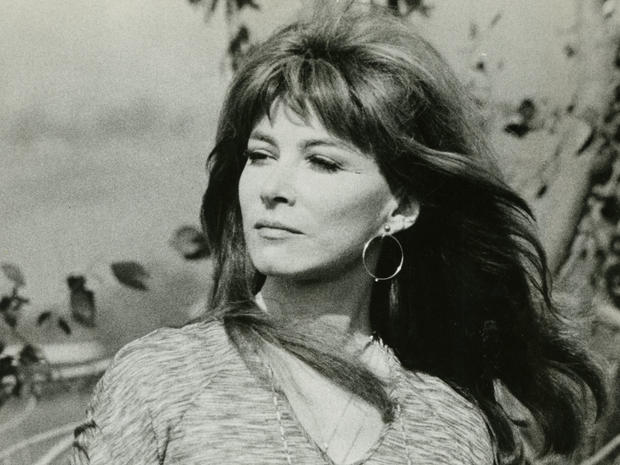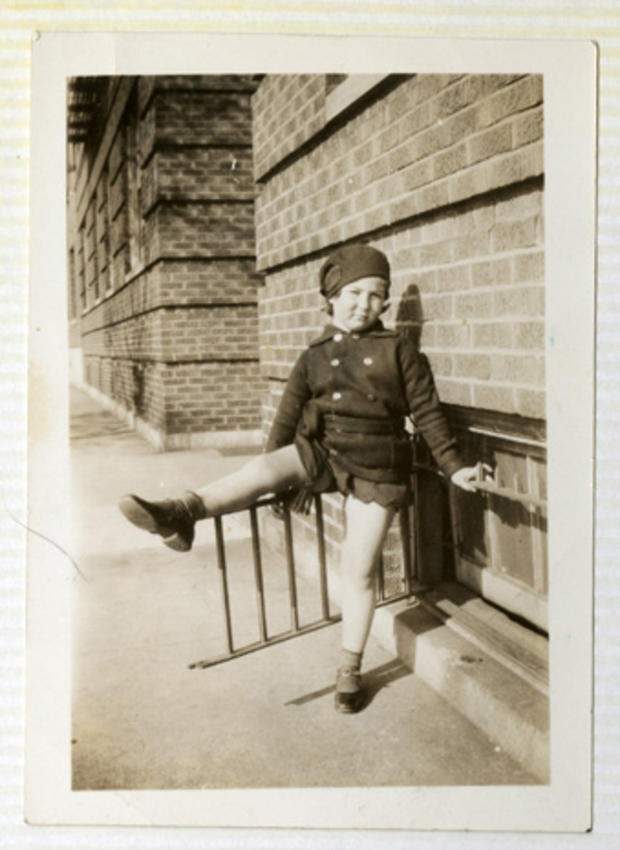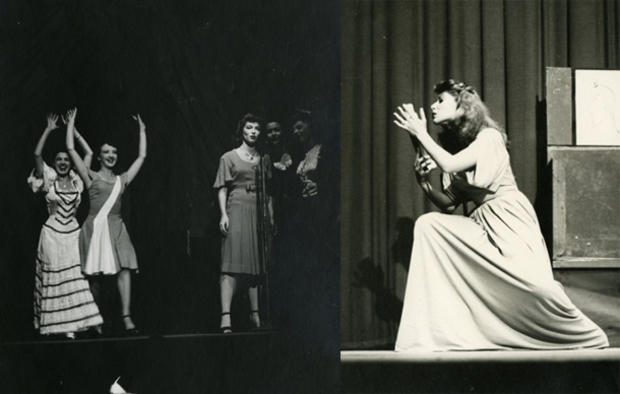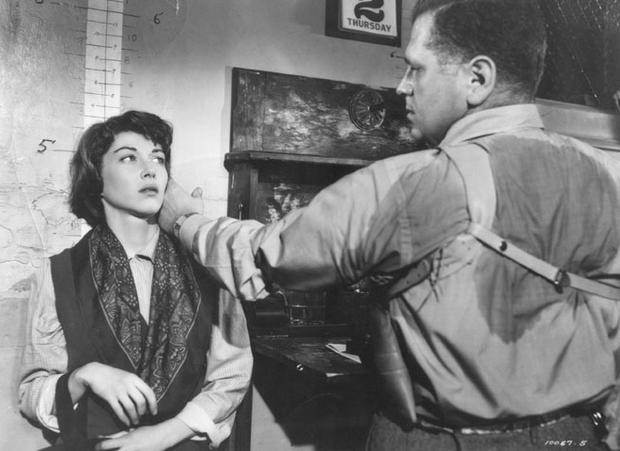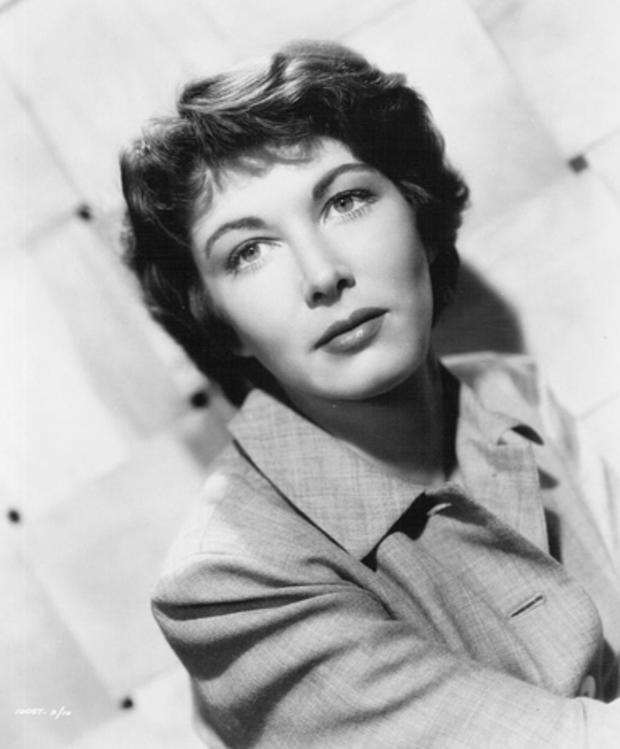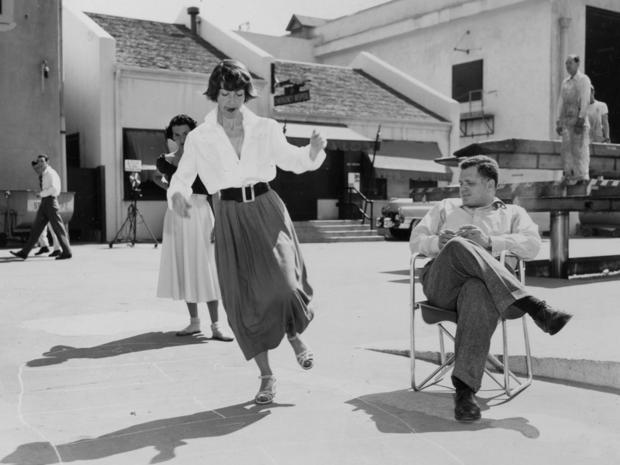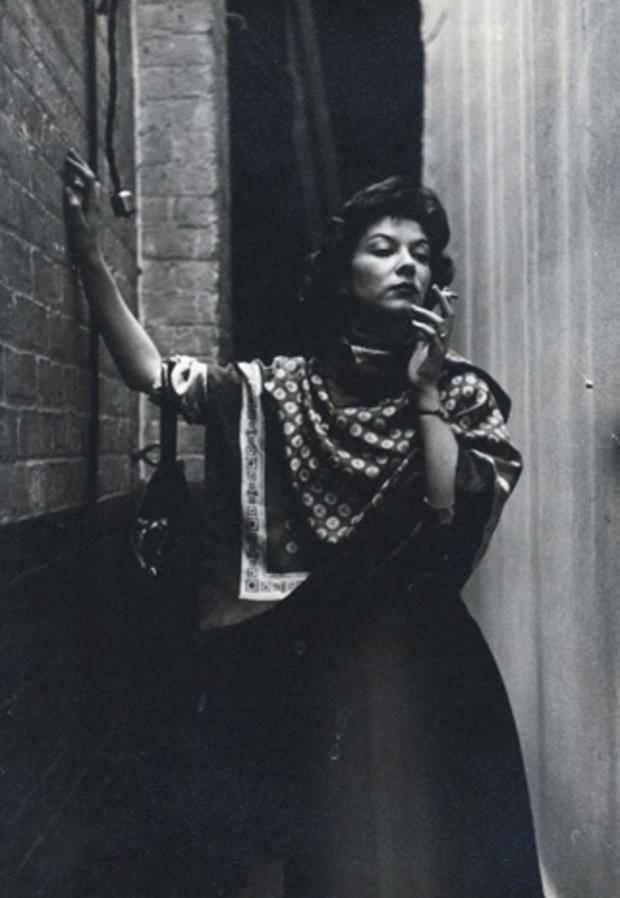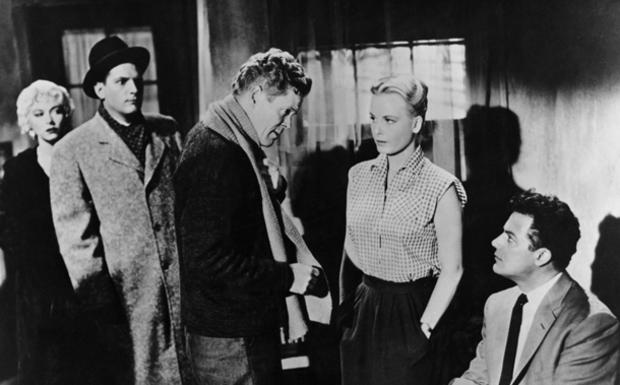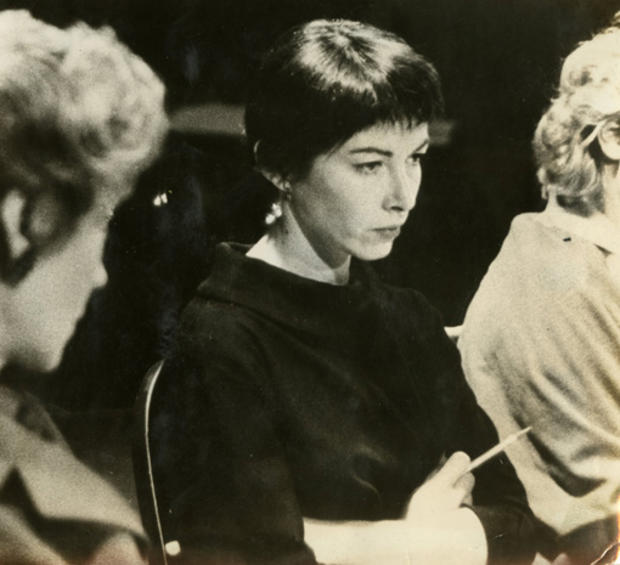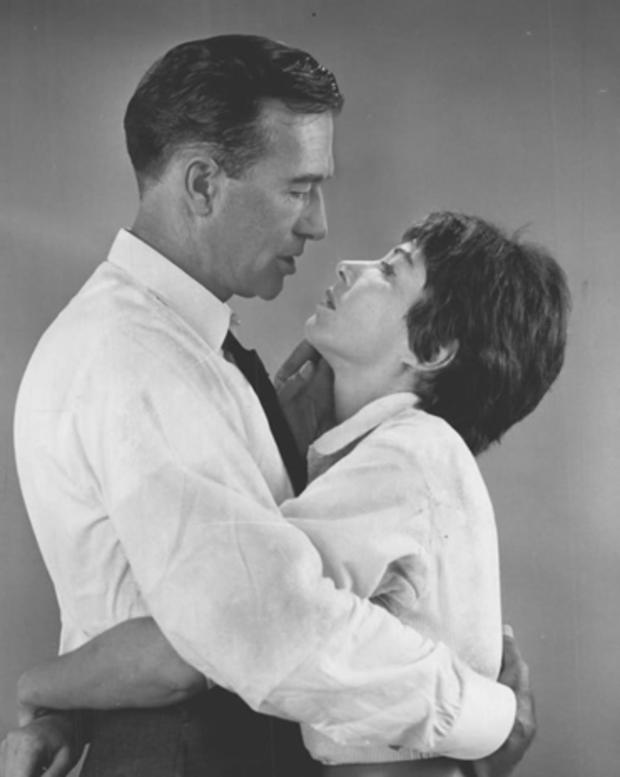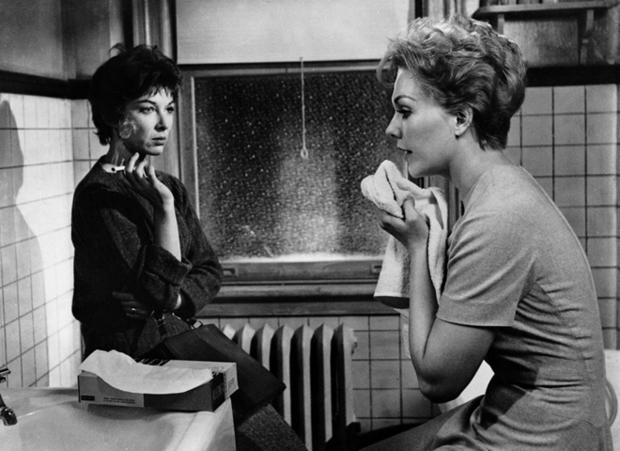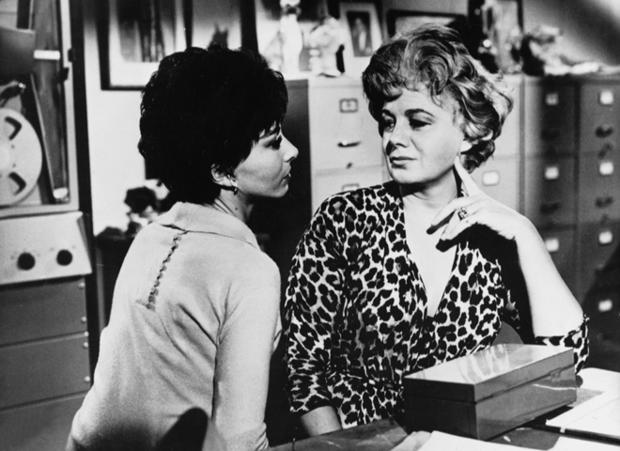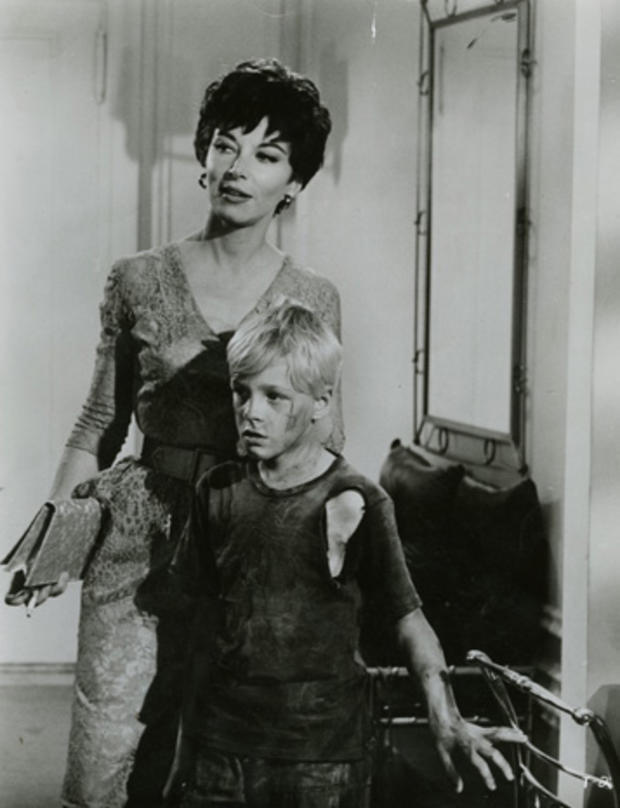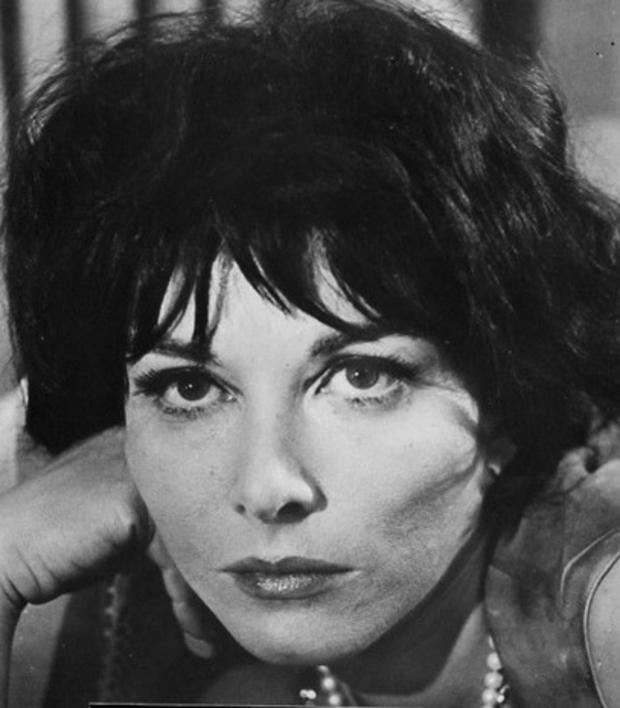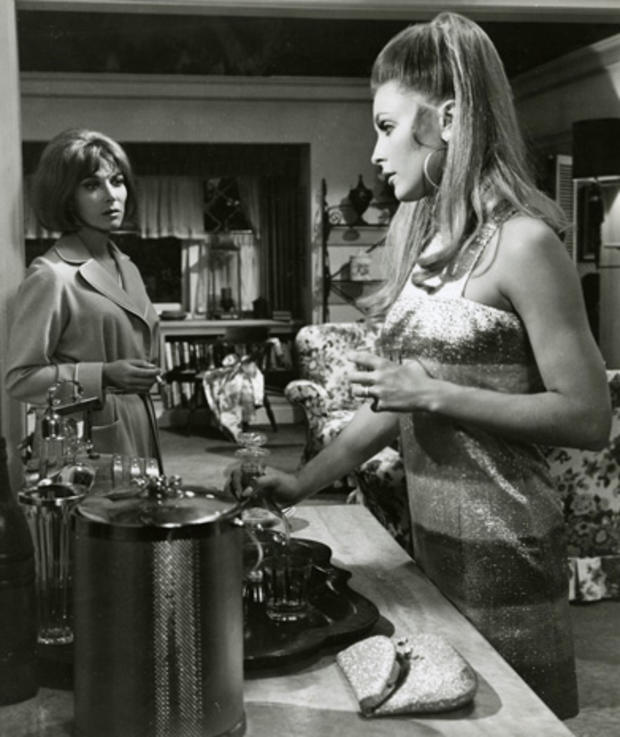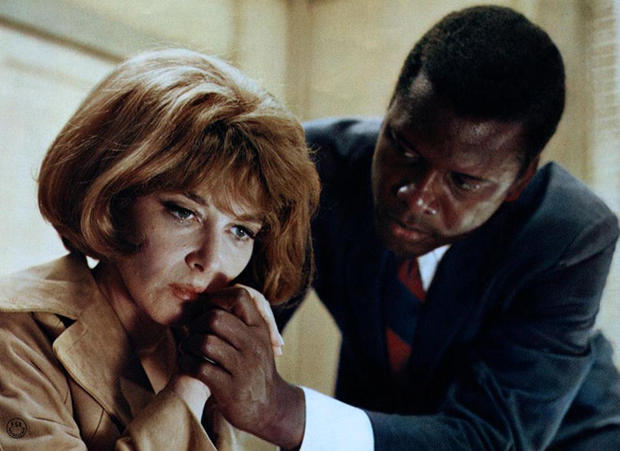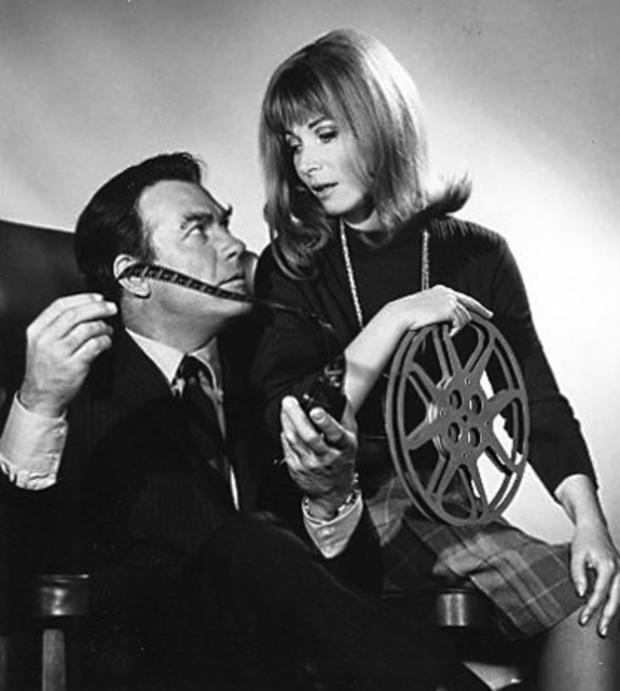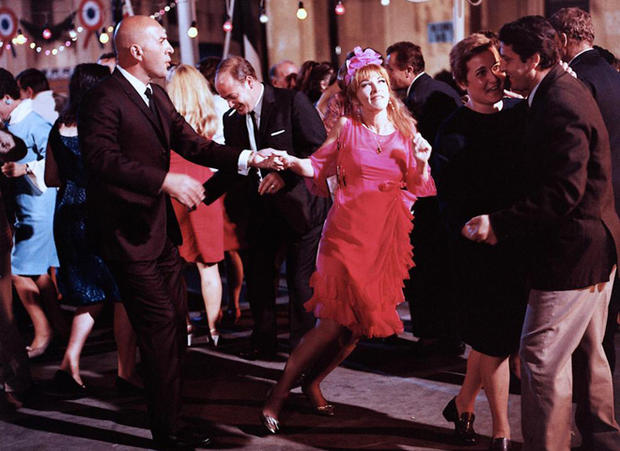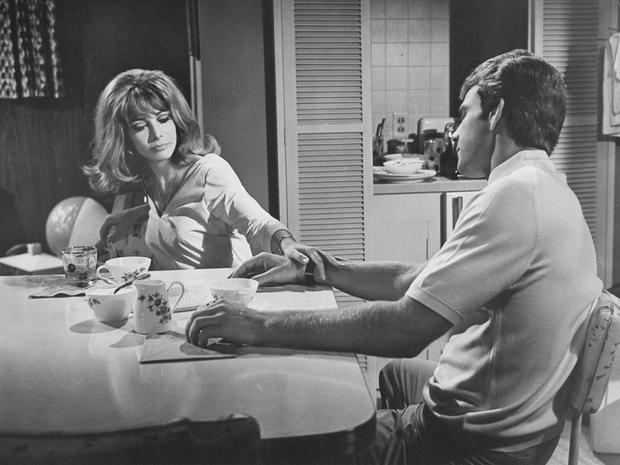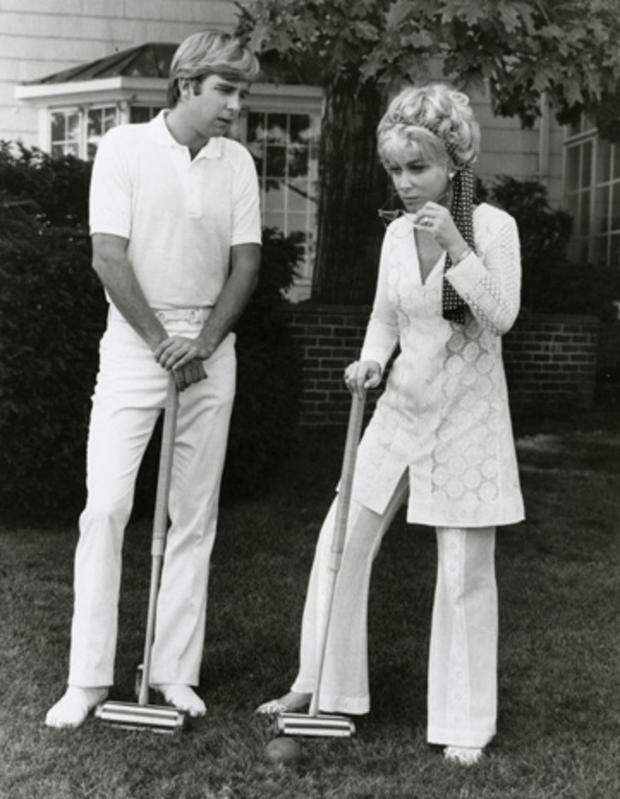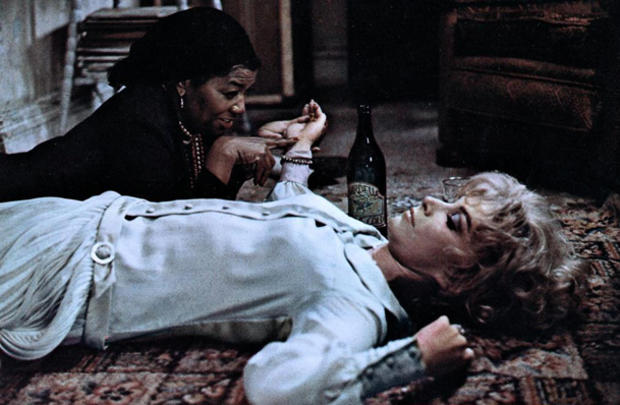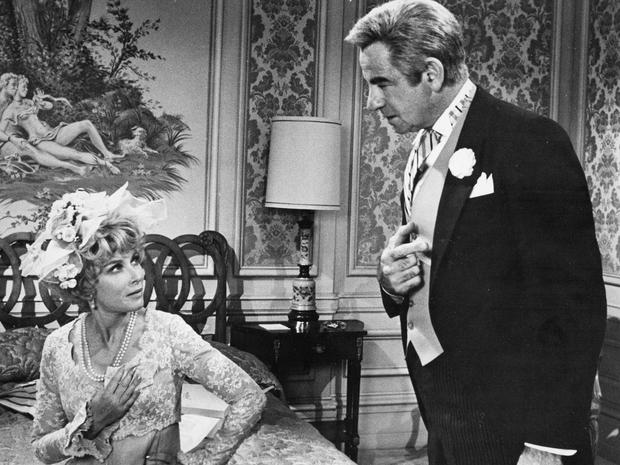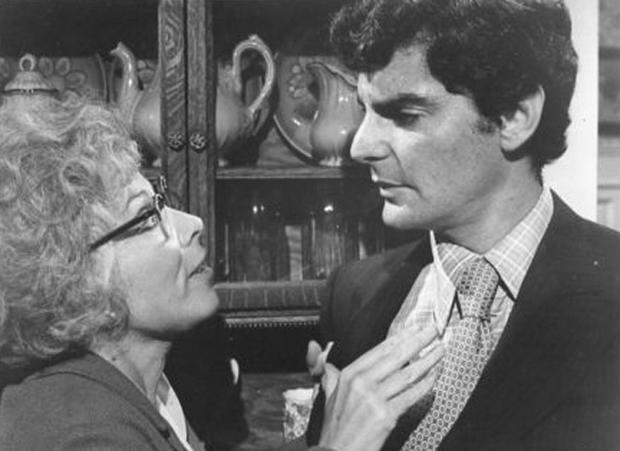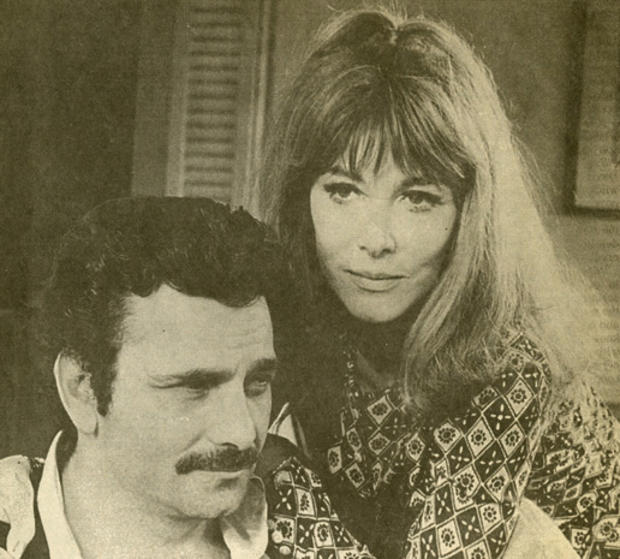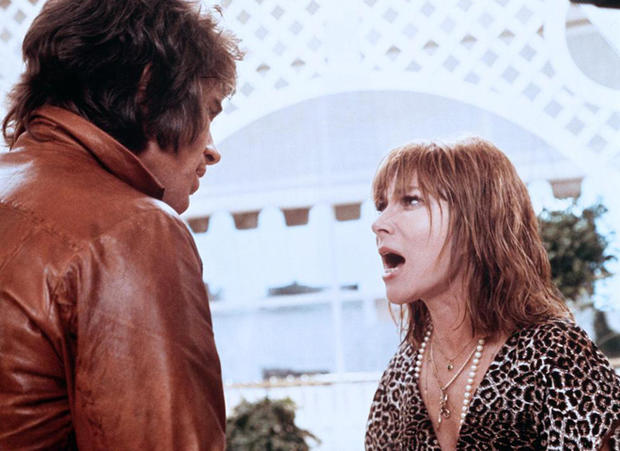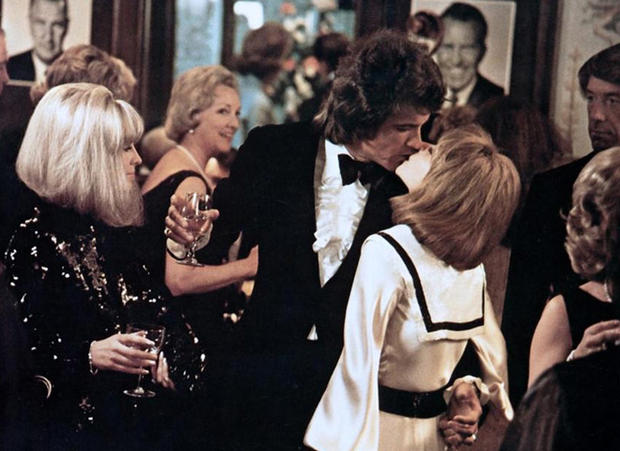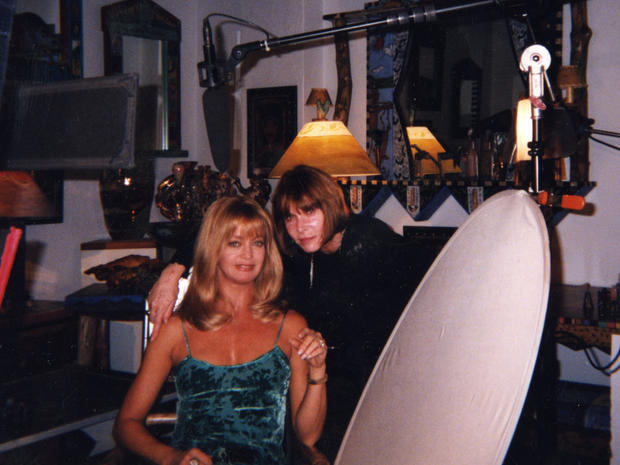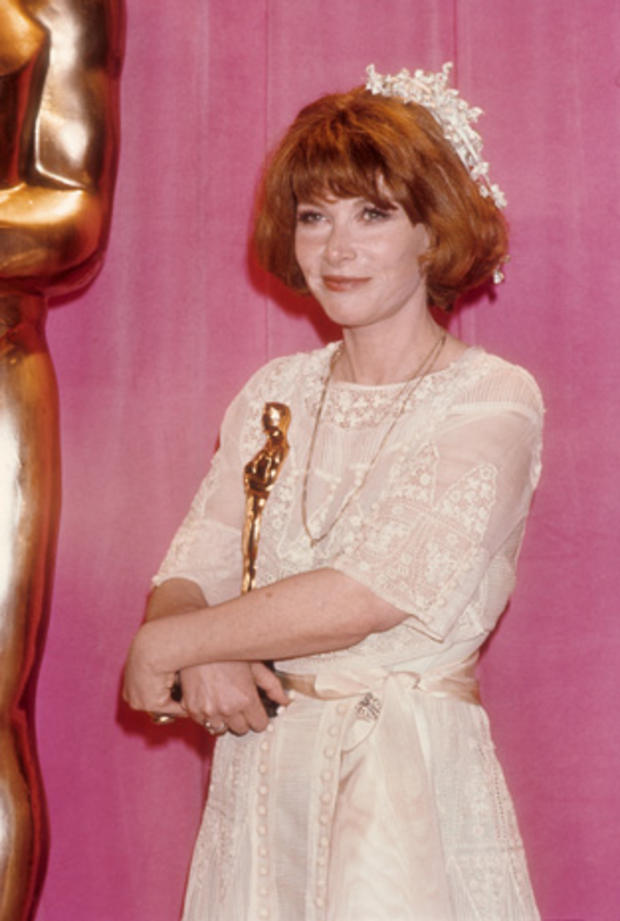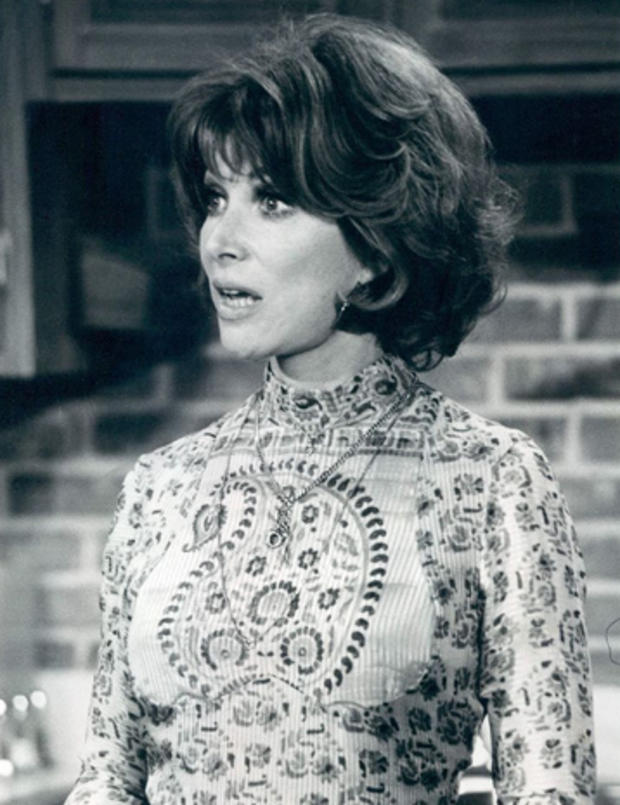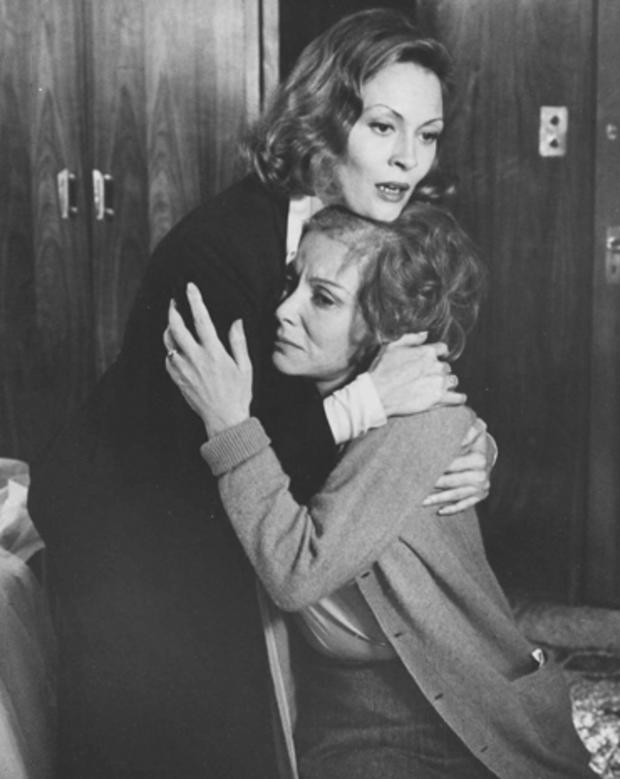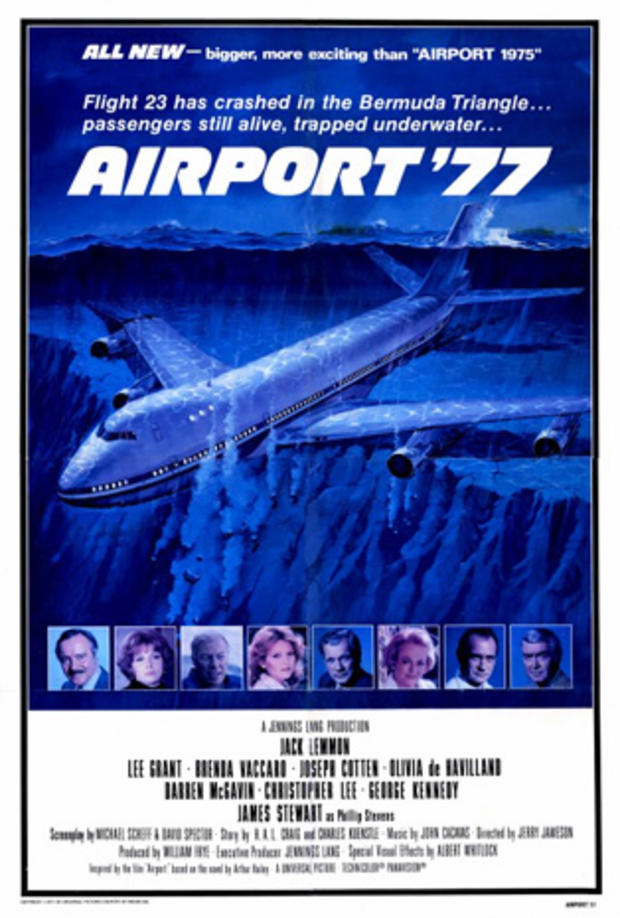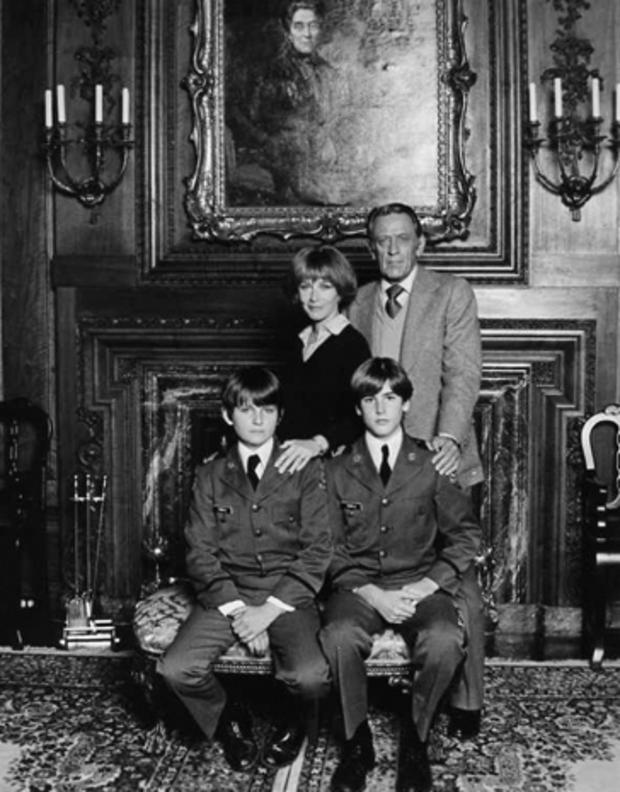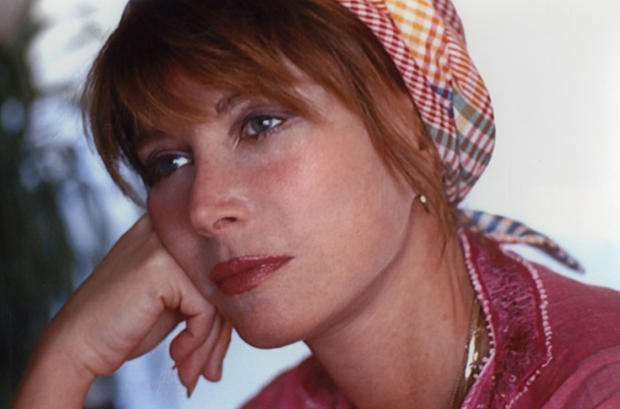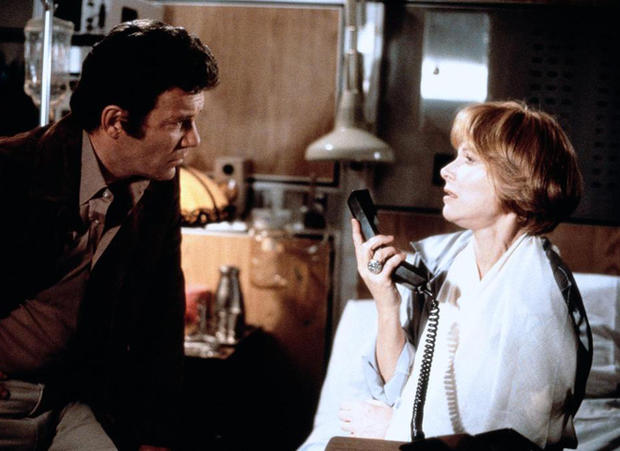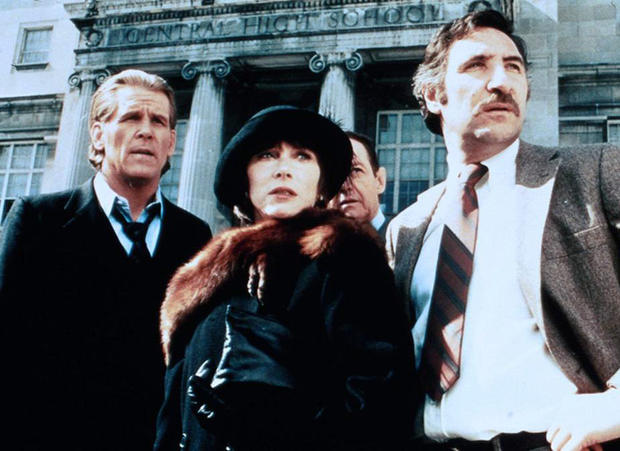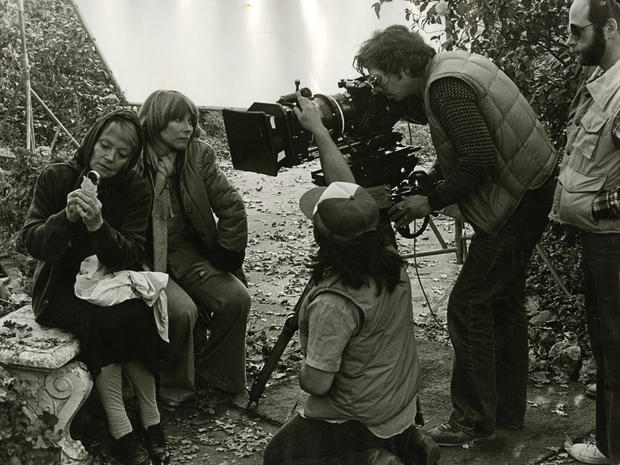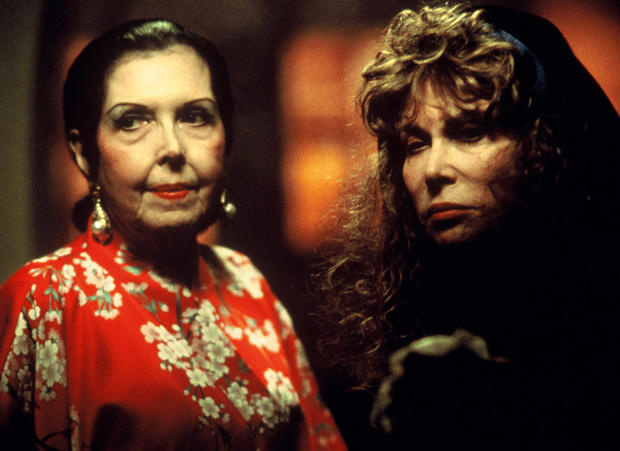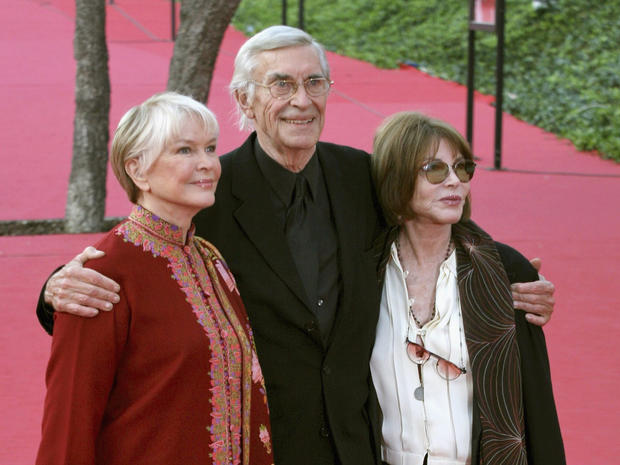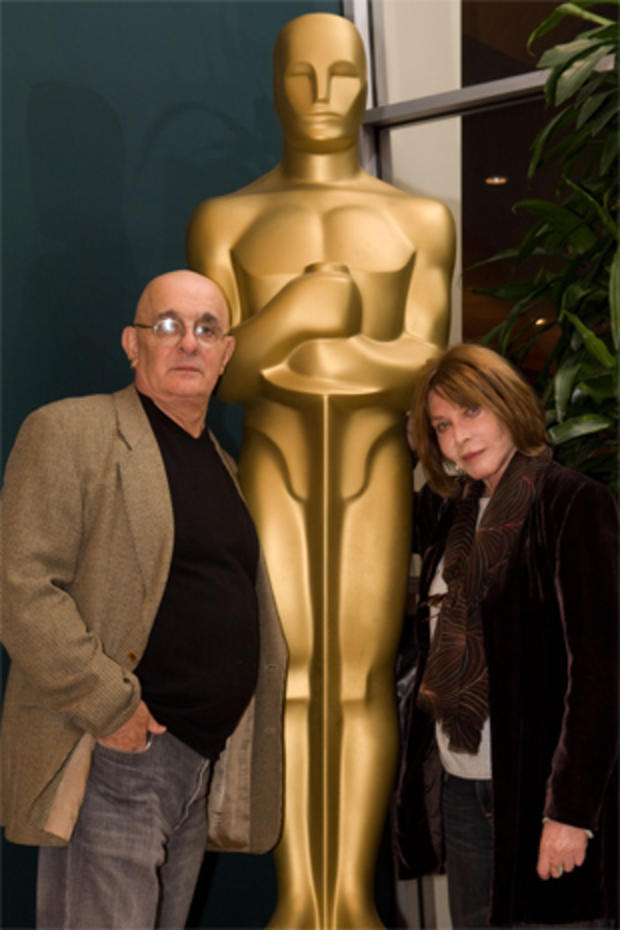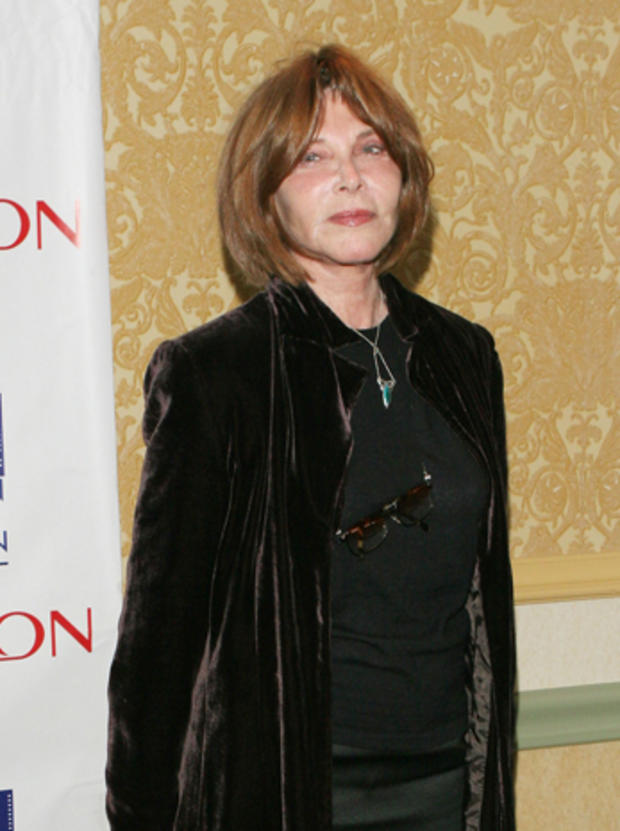Lee Grant
"I never was an ingenue."
From a very young age, Lee Grant knew she wanted to act, and studied with noted teacher Sanford Meisner before winning accolades for her first film role in 1951. But the future Oscar-winner's bright career was practically sidetracked for more than a decade because of the blacklist imposed by the Cold War-era's Communist witch hunts.
Now in her 80s, Grant writes about her brilliant career and life on stage and screen in her new memoir, "I Said Yes to Everything."
By CBSNews.com senior producer David Morgan
New York City
Born Lyova Haskell Rosenthal, whose mother was a Russian émigré, Lee Grant told CBS News' Michelle Miller that her family had a vision for her: a life of fame and glamour.
"A rich, rich, rich American, with a slightly English accent," Grant said. "You know, what they saw in the movies. There was just a yearning, a wish, an immigrant's wish. And it all depended on me to carry out the wish."
Taking ballet lessons, Grant appeared on stage at the Metropolitan Opera as a dancer at age four.
Off-Broadway
Lee Grant began appearing on stage at the Tamiment Playhouse, and at the off-Broadway Neighborhood Playhouse, founded by Sanford Meisner, the "method acting" proponent from the Group Theater.
"It was incredibly vibrant and important," Grant told CBS News correspondent Michelle Miller. "And it changed the way you saw theater, totally. The way that [Meisner] taught us gave you a kind of focus that made you understand acting for the first time."
"Detective Story"
Grant's first major Broadway appearance, at 22, was in "Detective Story," in the small role of a shoplifter described in the script as being 40 years old. She took her accent and manner from women she overheard on the bus.
"It was a wonderful part to explore," Grant told Miller. "And so I became like talk of the town -- Vogue pictures, all kinds of things suddenly happened."
She repeated her performance in the 1951 film version (left), starring Kirk Douglas and William Bendix, winning the Best Actress Award at the Cannes Film Festival, and earning a Best Supporting Actress Oscar nomination.
"Detective Story"
Lee Grant in a publicity photo for "Detective Story."
"Detective Story"
Lee Grant dancing on the set of "Detective Story."
New York City
Grant, who said she had no political interests or education, was married to screenwriter Arnold Manoff, a member of the Communist Party. He (like other stage, TV and film figures at the time) was accused by the House Un-American Activities Committee of being allied to the Soviet Union, and was blacklisted from gainful employment. [Manoff could only find work under a pseudonym.]
When her friend and fellow actor J. Edward Bromberg suffered a fatal heart attack after facing the Committee, Grant spoke at a memorial service held by Bromberg's Broadway colleagues.
"I said that I felt that he had his heart attack because of the House Un-American Activities Committee," Grant recalled. "And two days later, I was in an Actors Equity meeting, and the actor in front of me said, 'I see you've made the list.' And I said, 'What list?' 'Red Channels.' My name was in it -- Lee Grant with the words that I'd said at his memorial. And so from that day, for 12 years, I couldn't work again in film or television."
"Storm Fear"
The blacklist kept Grant from being employed by major Hollywood film studios throughout the '50s and early '60s; she had a few live TV roles and appeared in independently-financed movies, such as the 1956 film noir "Storm Fear" (far left), directed by star Cornel Wilde and written by Horton Foote. But otherwise she could only appear on stage or teach acting.
Even after Grant divorced Manoff in 1960, the blacklist against her continued.
"A Hole in the Head"
Lee Grant pictured in rehearsals for "A Hole in the Head" (1957), directed by Garson Kanin,
Lee and Dinah
Lee Grant with her daughter, Dinah Manoff, age 2.
Manoff would grow up to become an actress herself, appearing in "Grease," and on TV's "Soap" and "Empty Nest." She won a Tony Award for Neil Simon's comedy, "I Ought to Be in Pictures," and reprised her role in the 1982 film starring Walter Matthau.
"Two for the Seesaw"
For the lead in the Broadway comedy "Two for the Seesaw" - the role which had originally made Anne Bancroft famous - Lee Grant starred opposite Jeffrey Lynn (left).
"Middle of the Night"
Lee Grant costarred with Kim Novak in Delbert Mann's "Middle of the Night" (1959), about Novak's May-December romance with her boss (Fredric March).
"The Balcony"
Lee Grant and Shelly Winters in "The Balcony" (1963), a film adaptation of the Jean Genet play, which co-starred Peter Falk, Leonard Nimoy and Ruby Dee.
"Terror in the City"
In "Terror in the City" (1964), a.k.a. "Pie in the Sky," Lee Grant played a New York prostitute who takes in young boy (Richard Bray) who has hitchhiked to the city.
"Peyton Place"
Lee Grant as Stella Chernak in the TV series "Peyton Place."
"'Peyton Place,' at that time, was so popular that it was on three times a week. So getting that work and landing in Malibu - from the darkness of the blacklist to the lightness of the beach and the sand – it was like, you know, 'Pinch me. Am I here? Is this sun? Is that ocean?' I jumped into the pool with my clothes on just to see if it was real or not.
"And the work just came. I was offered one thing after another, all the things that I didn't have for 12 years."
"Valley of the Dolls"
Lee Grant and Sharon Tate in "Valley of the Dolls" (1967).
"Actors come to a film with a kind of delusion that it's going to be the making of their career," Grant said. "And when ['Valley'] did come out, it was just killed. But of course, it is now a cult film. Everybody knows every line of 'Valley of the Dolls.'"
"In the Heat of the Night"
In the 1967 drama "In the Heat of the Night," Lee Grant played the widow of a murder victim in a small Mississippi town who demands that the black Philadelphia detective on the case (played by Sidney Poitier) lead the investigation.
Grant: "My first movie with Rod Steiger and Sidney Poitier and Norman Jewison. We entered into a kind of closeness that you never get any place. And it was a really, really important film."
"Judd for the Defense"
Lee Grant received her second Emmy nomination for her appearance in a 1968 episode of the legal drama, "Judd for the Defense" (with Carl Betz).
"Buona Sera, Mrs. Campbell"
Lee Grant appeared with Telly Savalas in the 1968 comedy, "Buona Sera, Mrs. Campbell," about an Italian woman (Gina Lolabrigida) who tries to learn which of three men is the father of her daughter.
The film's plot became the basis of the long-running ABBA musical, "Mamma Mia!"
"The Big Bounce"
Lee Grant played a divorcee/single mother who becomes romantically involved with a handyman (Ryan O'Neal) in "The Big Bounce" (1969), based on the Elmore Leonard novel.
"The Landlord"
In the Hal Ashby comedy "The Landlord" (1970), Lee Grant earned her second Oscar nomination playing the mother of Beau Bridges, a well-off WASP who buys an inner-city tenement building and - to his family's chagrin - becomes emotionally involved with his tenants.
"The Landlord"
"I never eat lunch": Lee Grant visits a fortune teller (Pearl Bailey) in her son's building and shares more than a little alcohol in "The Landlord."
Grant: "'The Landlord 'is not seen very much [today]. But that's a Hal Ashby movie that is certainly one of my favorites."
"Plaza Suite"
In the 1971 film version of Neil Simon's omnibus comedy "Plaza Suite," Lee Grant and Walter Matthau play a couple whose daughter refuses to leave her locked bathroom on her wedding day.
"Portnoy's Complaint"
Richard Benjamin as Portnoy and Lee Grant as his mother in the 1972 film version of Philip Roth's sexual comedy, "Portnoy's Complaint."
"The Prisoner of Second Avenue"
Peter Falk and Lee Grant on Broadway in Neil Simon's "The Prisoner of Second Avenue," directed by Mike Nichols.
"Shampoo"
Lee Grant with Warren Beatty in Hal Ashby's "Shampoo" (1975).
"'Shampoo' was a great movie," Grant told Miller. "The script was absolutely amazing. The whole sense of the movie [was of] things that had to do with money and not principle, and marriages falling apart, things falling apart."
"Warren played the part of this eager hairdresser who just wanted to please his clients. And I was a client. And the way that he could please me was to go to bed with me -- I was in a very, very bad marriage."
"Shampoo"
Grant: "And Warren's character wanted to please his other clients, his girlfriends. And he ended up being too decent to make the cut. Everybody else went on, and he never got his own salon, which is all he ever wanted. So it was a kind of a picture of the times within the Nixonian era."
"Shampoo"
Lee Grant and "Shampoo" costar Goldie Hawn.
Academy Awards
"I think we had a fight 10 years ago," Lee Grant said holding her Oscar for her performance in "Shampoo." "But he's changed -- I know I haven’t.
"I would like to thank the artistic community for sustaining me in my wins and losses and sitting on the curb."
"Fay"
Lee Grant starred in the 1975-76 TV sitcom, "Fay," about a middle-aged woman's life post-divorce. Only 10 episodes were filmed before NBC pulled the plug, but Grant received another of her seven Emmy nominations.
Grant won for the 1971 TV movie, "The Neon Ceiling," and also received nominations for a 1971 "Columbo" episode and for the 1993 HBO movie, "Citizen Cohn."
"Voyage of the Damned"
Lee Grant (with Faye Dunaway) received her fourth Oscar nomination for "Voyage of the Damned" (1976), about Jews aboard an ocean liner in 1939 desperate to find a nation that will accept them as refugees from Nazi Germany.
"Airport '77"
Lee Grant starred as a passenger on a doomed airliner in the disaster film "Airport 77" ("hunk junk fun"), in which she panics and tries to open the door -- which was not a good idea, since the plane is underwater.
"There's a point when I go crazy and I try to open up the airplane door when we're at the bottom of the ocean," Grant told Miller. "And so Brenda Vaccaro comes over and she socks me! And we just fell to the floor laughing. I couldn't get up, I was laughing so hard."
Grant then nixed a stunt woman for her water tank scene after witnessing costar Olivia De Havilland -- then 60 -- eagerly consent to having tons of water poured on top of her.
"Damien: Omen II"
Lee Grant and WIlliam Holden played the guardians of their nephew, Damien Thorn (Jonathan Scott-Taylor, lower left), a.k.a. the Antichrist, in the 1978 horror film, "Damien: Omen II," co-starring Lucas Donat.
"When You Comin' Back, Red Ryder?"
Lee Grant starred in the 1979 film version of Mark Madoff's play set in a backwater roadside cafe, "When You Comin' Back, Red Ryder?"
"Visiting Hours"
A feminist (Lee Grant) is stalked by a psychopath, and even the comforting County Hospital where she recovers from her assault offers no protection in the 1982 suspense film "Visiting Hours" (costarring William Shatner).
"Teachers"
Lee Grant is a school superintendent in the 1984 satire "Teachers" (with Nick Nolte and Judd Hirsch).
"Tell Me a Riddle"
Left: Lee Grant directing the film "Tell Me a Riddle" (1980).
"It was an absolute gift," she said of becoming a director, which began with television projects in the early '70s and an American Film Institute short, "The Stronger." "It was so delicious. And I had such a good time. It was like going from one rock over the rapids to the next. It was some place I really wanted to go. And so that opened up a whole area of compulsion of some -- not being compulsed to be an actor, but being compulsed to go in another place, a new obsession."
Among Grant's films were several documentaries, including an HBO film about homelessness during the Reagan years, "Down and Out in America," which won an Academy Award.
For her 1986 TV movie "Nobody's Child," starring Marlo Thomas, Grant won the Directors Guild of America's Dramatic Special Award.
"Mulholland Drive"
"Someone is in trouble; something bad is happening!" Lee Grant (right, with Ann Miller) shares a warning with Naomi Watts in David Lynch's "Mulholland Drive" (2001).
Actors' Studio Alumni
Actors Ellen Burstyn, Martin Landau and Lee Grant attend the Actors' Studio red carpet on the sixth day of the Rome Film Festival, October 18, 2006 in Rome, Italy.
Academy Awards
Director Lee Grant and her husband, producer Joseph Feury, attend a 2007 screening of their 1986 Oscar-winning documentary feature, "Down and Out in America," at the Academy of Motion Picture Arts and Sciences' Linwood Dunn Theater.
New York City
Actress Lee Grant attends the Women in Film and Televisions Annual Muse Awards at the New York Hilton Hotel on December 16, 2004 in New York City.
For more info:
"I Said Yes to Everything: A Memoir" by Lee Grant (Blue Rider Press); Also available in eBook and Unabridged Audio Download formats
Read an excerpt from "I Said Yes to Everything"
